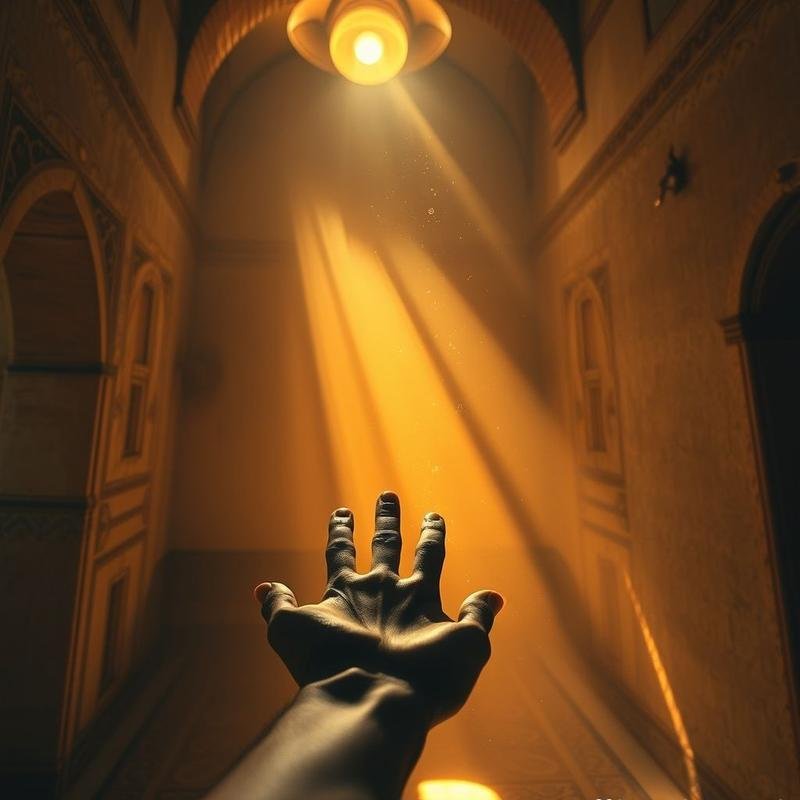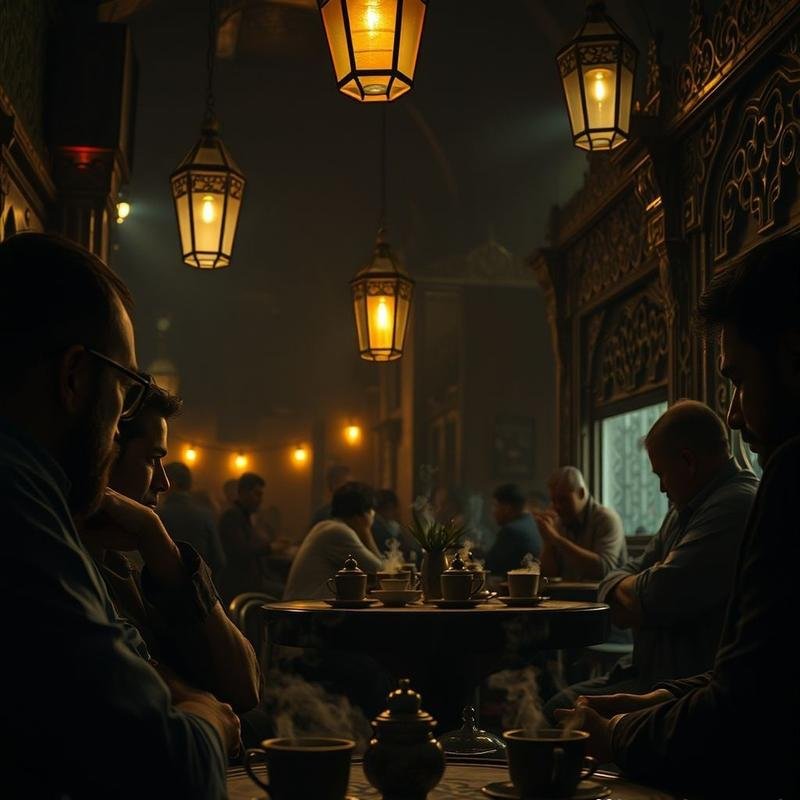Why do conspiracy theories resonate? A case study of the Sykes-Picot Agreement and Arab skepticism.

Arab Conspiracy Theories: Sykes-Picot & Skepticism
What we often believe most is what we cannot see. This apparent contradiction fuels skepticism, particularly in the Arab world. How has a region once renowned for its rationality become so susceptible to conspiracy theories? Is it merely coincidental that such narratives thrive where power is opaque and historical conflicts remain unresolved? Or is there a deeper, culturally ingrained predisposition to believe the improbable, even the inevitable?
This documentary will not pursue an elusive absolute truth. Instead, it will explore the Arab psyche, examining how collective disappointments, distorted historical narratives, and anxieties about an uncertain future shape our perception of the world. We invite you to share your thoughts in the comments and subscribe for updates as we delve into the complex roots of skepticism. Let us begin to understand why conspiracy theories thrive in our region.
Roots of Skepticism: History, Culture, and Suspicion
Having examined the prevalence of conspiracy theories, we must ask: why do these ideas flourish specifically in the Arab world? Is this merely a coincidence, or are there deep historical and cultural roots that nourish this phenomenon?
The answer, unfortunately, is rooted in our painful experiences. Colonialism, with its unfulfilled promises and the systematic division of lands, left deep and lasting scars. The Sykes-Picot Agreement of 1916 represents a profound wound, dividing the region without regard for its people and fostering deep distrust of Western powers. This suspicion intensified with the Nakba of 1948, the establishment of the State of Israel, which Arabs perceived as an existential shock, reinforcing feelings of historical injustice and a Western conspiracy to undermine the Arab nation.
The 1967 war, or the Setback, was the final blow. This resounding defeat exposed the vulnerabilities of Arab political systems and their inability to protect their people’s interests. The wall of trust crumbled, opening the door to alternative, often conspiratorial, interpretations of events.
The questionable role of the media, particularly state-controlled or politically aligned outlets, cannot be ignored. These channels actively promoted and embedded conspiracy theories in public consciousness. The rise of social media further exacerbated this divide. A 2015 Cairo University study revealed that over 60% of Egyptian youth believe foreign powers are destabilizing the country, a belief fueled by online misinformation.
Compounding this is the lack of transparency in government institutions. When citizens lack access to clear and reliable information about decisions affecting their lives, they seek alternative explanations, even if illogical or imaginative. A prime example is the secretive implementation of major infrastructure projects, lacking transparency regarding contracts and beneficiaries, fostering suspicions of corruption and hidden conspiracies.
The Human Psyche: Why We Believe
Having explored history and geopolitics, let us now delve into the human psyche, where complex threads intertwine to form our convictions, even the most outlandish. Why do we believe in conspiracy theories? Are they merely fleeting illusions, or complex psychological defense mechanisms?
The answer lies in our deep-seated psychological biases. Foremost among these is confirmation bias – the unconscious tendency to seek information confirming our preconceptions while ignoring contradictory evidence. For example, someone convinced of a conspiracy to destroy Islam will actively seek out any supporting information, however flimsy, while disregarding opposing evidence. This dangerous bias can lead us astray.
Another factor is the tendency to seek illusory patterns. A 2021 Cambridge University study found that believers in conspiracy theories score significantly higher in this area. This means they are more likely to perceive patterns and connections that do not exist, finding false causal relationships and connecting unrelated events through hidden conspiracies.
Beyond visual illusions, the feeling of losing control over our lives, particularly amidst economic and political crises, drives us to seek simple, comforting explanations, even if fictional.
These deceptive patterns find fertile ground in today’s rapidly evolving information landscape, where false news spreads with astonishing speed. An MIT study revealed that false news spreads six times faster than real news on Twitter, tapping into our deepest fears, stirring emotions, and confirming what we want to believe – a perfect recipe for misinformation.
Imagine an Arab youth burdened by life’s challenges in a country facing economic and political crises. He finds himself surrounded by what Cass Sunstein calls “digital mirror rooms,” where only his own opinions and beliefs are echoed. Within these echo chambers, suspicions of governments and official media are amplified, and conspiracy theories spread like wildfire. For example, false claims that COVID-19 vaccines contain espionage microchips or are part of a global depopulation plot spread rapidly through platforms like WhatsApp and Telegram, sowing doubt and fear and leading to vaccine hesitancy in many Arab countries, exacerbating the health crisis.
The Dunning-Kruger effect is also evident, with unqualified individuals exhibiting blind confidence in their misinformation, becoming self-proclaimed experts on social media and spreading misleading analyses of current events. The recurring electricity outage crisis in Iraq, for example, has spawned countless false claims of foreign interference and sabotage, lacking concrete evidence or sound logic. Unfortunately, these claims find receptive audiences, particularly given the declining trust in official media.
Conspiracy theories thrive on distrust of authority and become an outlet for marginalized groups to express frustration and resistance. Are they merely illusions, or do they reflect a deeper reality? In the wake of the 2011 Egyptian revolution, conspiracy theories accusing foreign powers of manipulating events spread rapidly. This was not just an attempt to understand sudden political shifts, but a resounding protest from a people who felt disempowered and robbed of their future. A 2021 University of East Anglia study confirms this connection, showing that politically disempowered individuals are more likely to endorse such theories, reflecting a painful admission of helplessness.
In Basra in 2015, during the thirst uprising, accusations against foreign oil companies of polluting the water were not just fleeting claims, but an expression of pent-up anger and a desperate cry from a dying city, angry at its marginalization and the exploitation of its wealth. This feeling of relative deprivation increases susceptibility to conspiracy theories.
Fighting Back: Initiatives and Solutions
Are we merely victims? No, definitely not. Amidst this torrent of doubt, hopeful initiatives emerge, offering flashes of light in the darkness. “Tabayyana,” a leading Arab fact-checking platform, has analyzed thousands of false claims since 2018, but faces the challenge of reaching closed minds. In Jordan, a citizen journalism program trains young people to uncover misinformation. A recent Cairo University study demonstrates that training students in critical thinking reduces their belief in conspiracy theories by up to 30%, conclusive evidence of the feasibility of this work.
But how do we expand this limited impact? How do we reach every young person, every citizen? We must instill healthy skepticism – systematic, constructive skepticism – at the heart of our educational curricula. Instead of rote memorization and blind indoctrination, we must train students to analyze complex news, evaluate conflicting sources, and understand the hidden motives of publishers. Instead of ignoring deep societal concerns, let’s seize them as opportunities to teach critical thinking.
But how do we transform this healthy skepticism into an impregnable defense? Truth alone is insufficient; a Cambridge University study shows that diversity of sources is key. Consuming news from various channels, even mainstream ones, reduces our dangerous drift towards intellectual extremism. In 2021, 41% of Americans believed their government was hiding information about the 9/11 attacks. This suspicion, while sometimes justified, becomes fertile ground for dark conspiracies if not guided by reason. Is it not our duty to illuminate minds with logic?
Initiatives like the UN’s “Verify” and the WHO’s guide are necessary but insufficient to ward off the danger. The solution lies in empowering individuals, providing them with the tools to distinguish truth from fiction. A conscious, rationally thinking society is our strongest weapon against the rising tide of misinformation. The challenge is ongoing, but








